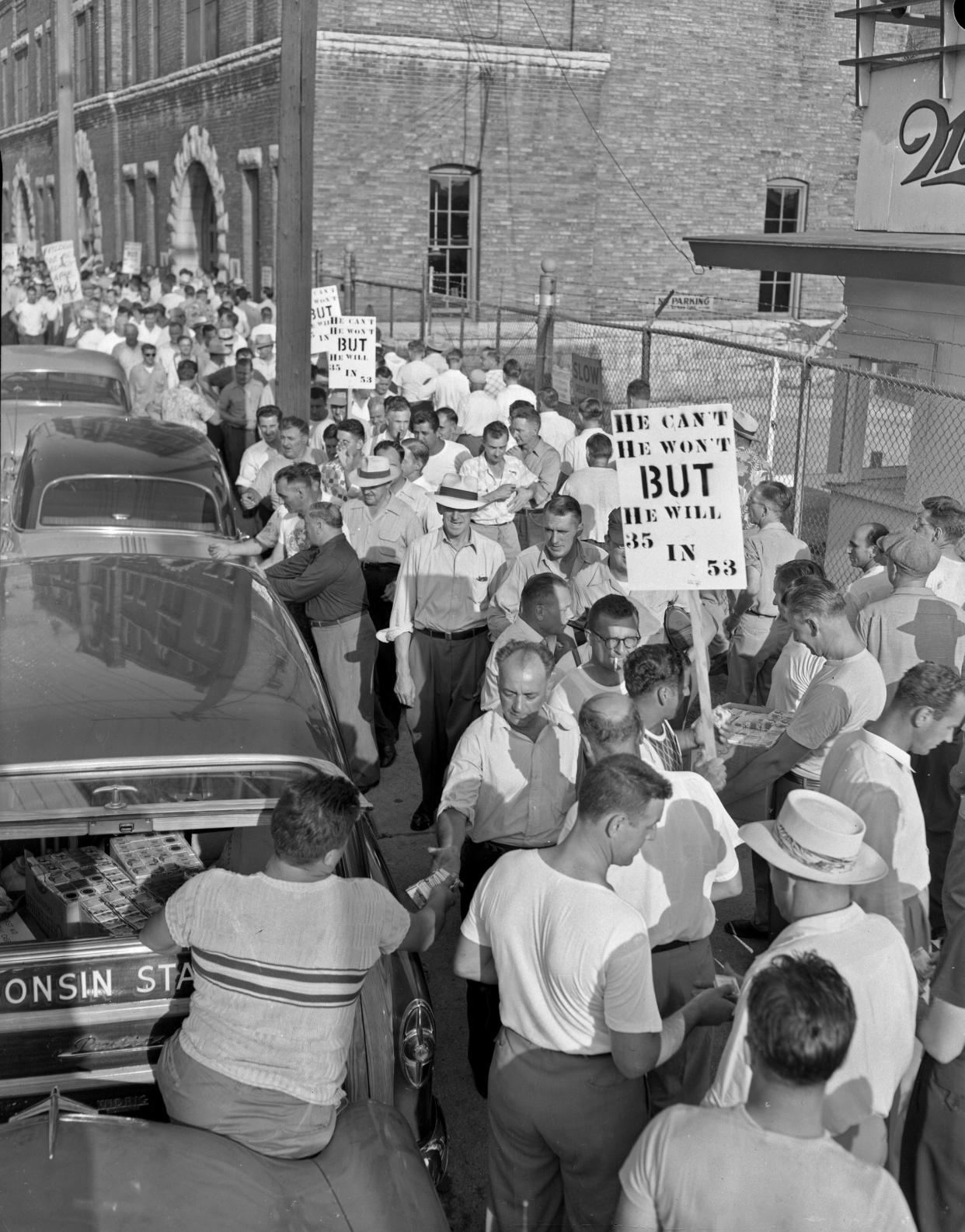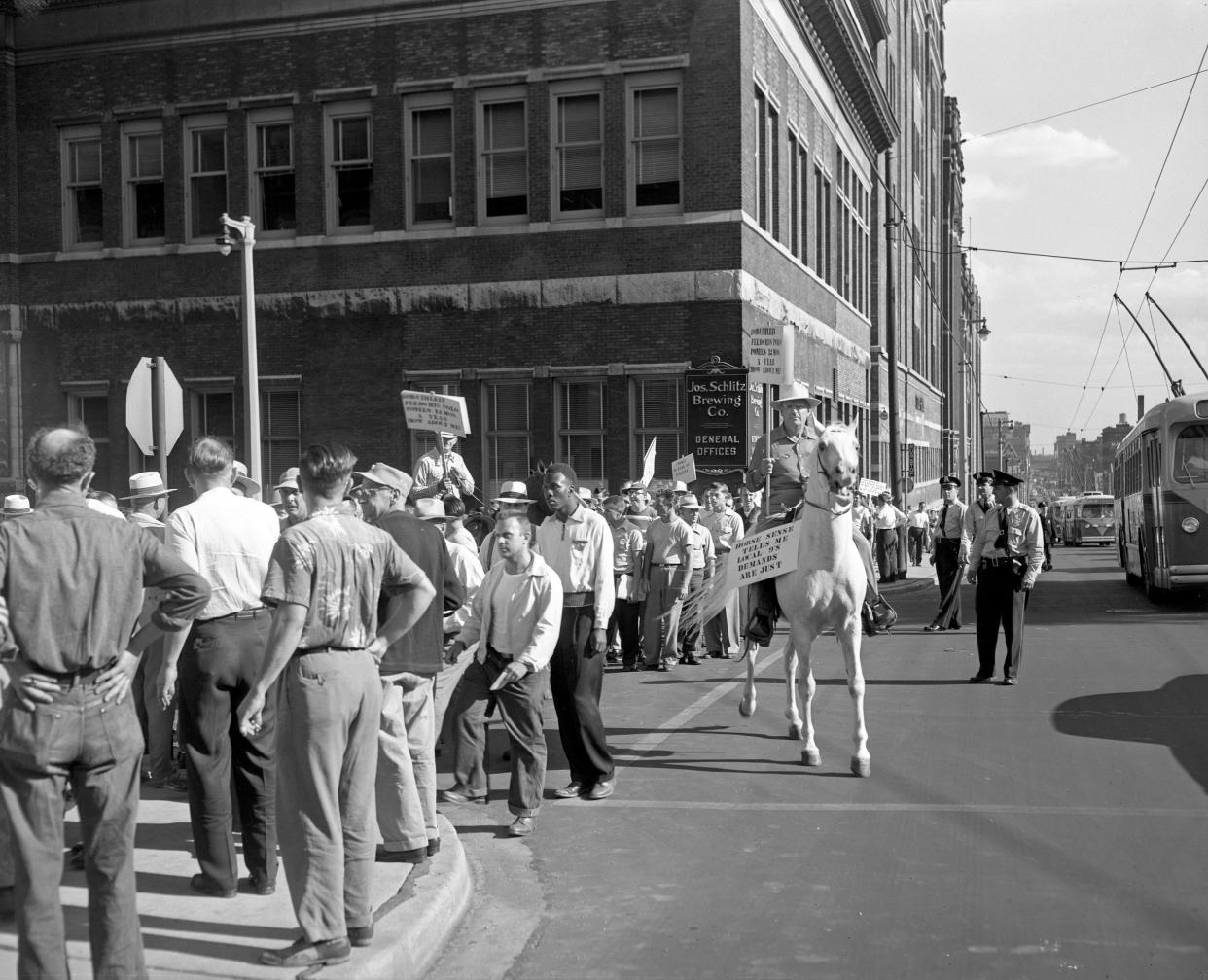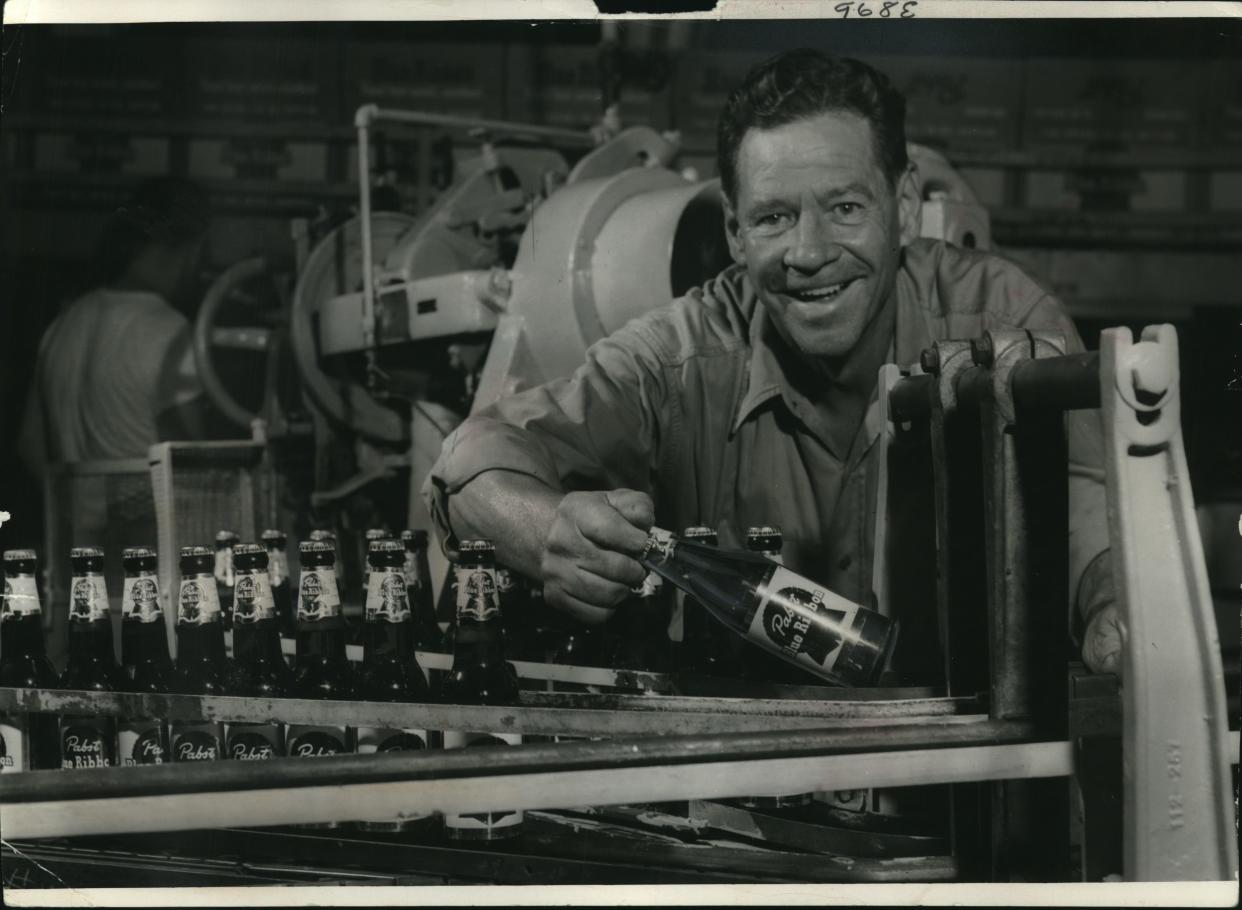When all of Milwaukee's brewery workers went out on strike
It was only a matter of time before it came to a, um, head.
In the 1950s, Milwaukee was the king of the beer world, with the world's largest brewery — Schlitz — and four of the largest breweries in the United States.
But Milwaukee's brewery workers didn't exactly feel like royalty. Their pay and benefits consistently lagged those of their brethren on the east and west coasts, including at plants owned by Milwaukee breweries.
When Local 9's contract expired in March 1953, the union set out to get more parity for its 7,100-plus members. Among the union's demands: Reduce the workweek from 40 hours to 35; boost pay by 25 cents an hour, and even more for workers in the breweries' bottling and brewing departments; a health plan; and pensions.
The Milwaukee Brewery Association — a consortium of the city's six big breweries, Schlitz, Miller, Blatz, Pabst, Gettelman and Independent Milwaukee, which made Braumeister — resisted.
Drink 'all the Milwaukee beer humanly possible'
Fearing the breweries were dragging out negotiations to stockpile more beer, union members on May 13, 1953, voted overwhelmingly — 6,652 to 108 — to strike. By 5 a.m. the next day, the pickets were out and all beer production stopped at the big six breweries.
Among the picket sign slogans: "Big League Wages for a Big League City," a nod to the Braves moving to Milwaukee just one month earlier.
Negotiations did not go smoothly. In response to perceived stalling tactics by the breweries, the state CIO, which Local 9 was part of, urged the city to drink "all the Milwaukee beer humanly possible," The Milwaukee Journal reported on its front page on May 19.
"When present stocks of beer have gone the way of all good union-made beer, there won't be any more," the CIO reasoned its statement. This circumstance will help management in the six breweries to see the necessity of negotiating a new contract."
Still, the breweries didn't budge. Frederick C. Miller, president of Miller Brewing Co., said at the company's annual stockholders meeting on May 27 that the beermakers "cannot and will not give in to any demand for less than a 40-hour workweek," The Journal reported.
Talks continued, but with little progress. And the effects of the citywide strike began to take their toll on the city.
The Journal reported on June 7 that the strike was costing the city $11 million a week.
But the brewery workers held firm. On June 15, the 33rd day of the strike, the union's bargaining committee rejected management's counteroffer of a 10-cent-an-hour raise and comprehensive health plan. Among the union's complaints: The counteroffer didn't make any mention of a pension or the union's plea for a shorter workweek.

"When they want to start putting some meat on the table, we'll negotiate," Local 9's John W. Schmitt told The Journal. "We're not going back for a piece of cheese we could have had before the strike started."
Management countered again on June 24, upping the raise to 15 cents an hour and adding some health benefits, but still no mention of a 35-hour week. Two days later, union members rejected that offer by a 6,274-348 vote.

At the urging of Mayor Frank Zeidler, the union made its own counterproposal, but the breweries rejected that, too.
Meanwhile, as summer heated up, the city's supply of Milwaukee-made beer was starting to run out. The Journal reported July 12 that taverns already were starting to ration kegs and cans of local brew.
A separate peace breaks the stalemate
On July 25, the 73rd day of the strike, Blatz Brewing President Frank C. Verbest told The Journal that his company might consider a separate deal with the union "if the union comes up with a fair and reasonable offer."
Blatz's willingness to go it alone — and get production up and running while the other breweries were still shut down — broke the logjam. The Sentinel reported that, seven hours after Blatz reached its own deal with Local 9 on July 26, the other five breweries OK'd a similar deal with the union.
The union got some of what it wanted: a 37.5-hour week (technically, it was still 40 hours, but workers got a paid lunch half-hour, effectively cutting 2.5 hours of work time a week), a 20-cents-an-hour raise, a pension plan and a new Blue Cross health plan.
Two days later, union members approved the new contract, 4,710 to 1,537, ending the strike at 76 days. Beer started pouring out of the breweries' assembly lines as soon as the results of the vote were announced the next morning.

What is From the Archives?
Each week, From the Archives dips into the files of The Milwaukee Journal, Milwaukee Sentinel and Milwaukee Journal Sentinel to retell stories about memorable places, people and moments from years past. The stories will often include an array of additional photos online.
RELATED: The 5 breweries that made Milwaukee famous: Miller, Schlitz, Pabst, Gettelman and Blatz
This article originally appeared on Milwaukee Journal Sentinel: When all of Milwaukee's brewery workers went out on strike
